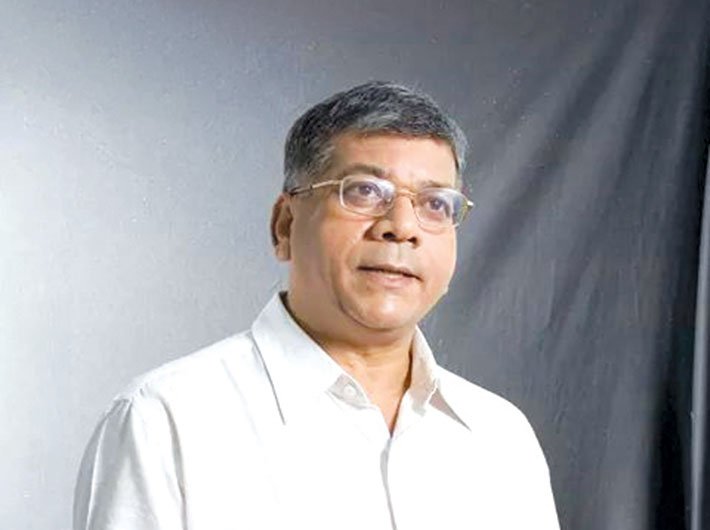Interview with Prakash Ambedkar, leader, Bharipa Bahujan Mahasangh and grandson of BR Ambedkar
How do you see the rise of the Bhim Army in Uttar Pradesh?
During the last assembly elections in UP, it was a common consensus among many [dalit leaders] that we’d give one more chance to Mayawati. If she comes back, well and good. If she doesn’t, let’s give somebody else a chance. As it turned out, she could not make a comeback. People started searching for a new face. A lot of meetings were taking place. Some leaders’ names were being considered and discussed in the meetings. In the meantime, Saharanpur happened. The Bhim Sena was formed overnight. This is a reaction… reaction to the incident. Now, people who were looking for somebody else have rallied behind Chandrashekhar Azad.
Can Azad be the face of the dalit movement in UP?
I think he is in the same position as Kanshi Ram was when he had stepped into UP. Earlier also, the RPI was very strong in UP. But by the time we reached the late eighties, there was a leadership vacuum. Kanshi Ram filled that vacuum, and then he built an entire organisation taking other leaders as his counsel. Azad is a young person. He needs to articulate things. He’s been made a culprit. During the Saharanpur incident, he was not even there. He came into the picture after the clash. Now, a lot of things depend on him. He should be able to gauge who are his adversaries, in the first place. That is one of the important decisions he’ll have to take. He should accept the fact that even in this hostile situation, Mayawati is not totally out. People are looking for a new face – this is also a reality. We’ll have to wait and see who emerges now.
Reactionary politics does not last long. Saharanpur politics is reactionary politics. It’s the need of the hour: no doubt about that. Now, Azad must carefully assess the BJP strategy. Yoginath [chief minister Yogi Adityanath] stands against the dalits. There’s a clear difference between the Congress and BJP.
Rajiv Gandhi had a stronger majority than Modi has. But nobody was afraid of Rajiv Gandhi. Everybody would criticise him, and he would tolerate criticism. Modi does not have that kind of majority, but you have BJP and RSS in power and they’re vindictive in nature. One of the first tasks before Chandrashekhar [Azad] is to galavanise and unite all the dalits together.
It’ll depend on how he coordinates now. He has the potential. He has age and the situation on his side. The kind of statements we’re getting from the chief minister… they’re so disturbing. The situation is volatile, and at the same time, there is a vacuum in UP. Mayawati hasn’t uttered a word against this situation. Voices have come from Gujarat, and from the other states – condemning the CM’s attitude and behaviour. So, this is where, I think, Chandrashekhar’s ability to coordinate and be in touch with other dalit leaders matters. It can’t always be laathi-to-laathi – that can’t be the answer. He’ll have to learn to take the masses along with him. It can’t be just limited to a reaction to the BJP. It has to be a measured reply.
Why did Mayawati fail to make a comeback in the elections?
Look at the Lucknow University issue [rustication of dalit students] in her state itself. People from other states visited them, fought for them, but Mayawati didn’t go there. She hasn’t formulated any policy, which would benefit her core voter [when she was in power]. And when she was not in power, she only went around before the elections. So, when people needed her, she was not there. These are the weaknesses Mayawati carries. Now, she is in the opposition. There was a time when she did not care for the opposition. She also has some inquiries going on against her. As of now, she hasn’t taken much on BJP. She took on Mulayam Singh [Yadav] and Akhilesh [Yadav], when the necessity was to target BJP.
Is there a dearth of dalit leaders in national politics?
All over the country, there were agitations after the Saharanpur incident. But there’s no all-India leadership as such. Each state has its leaders, and those state leaders have started organising themselves at the state level. And they’re protesting. Their protest represents basically the anger that we see in the masses. They’re giving a way out through the staging of dharnas. So, that is the kind of movement that has started. Now, the social media is also one of the biggest platforms to express yourself, your anguish on this issue. And therefore, you had in Delhi more than a lakh people on the streets all of a sudden – without posters, without a press conference [on May 21]. Every state will have a strong leader. Now, what we’re doing is project a state leader and see that he takes everybody along.
What do you think about the new generation of dalit leaders like Jignesh Mewani from Gujarat, BAPSA leaders in JNU or Ambedkar Students’ Association leaders in Hyderabad Central University?
We would like Jignesh to be developed. He’s just moving around the country. BAPSA and the rest of these groups have built a mass following for themselves, which is what Jignesh is missing. Jignesh depends on others; he doesn’t have his own movement as such.
How do you see the equation between the dalits and a government perceived to be pro-right-wing?
In the Saharanpur incident, Una incident [in Gujarat in 2016], Rohith Vemula’s incident [the Hyderabad University student’s suicide in early 2016] and the arrest of Chandrashekhar Azad, the government itself has given the push to the movement. Yogi Adityanath has given an outline of the kind of statements he’ll be giving [about] the dalits while he remains in power. Now, the opposition has all of a sudden become silent. The opposition could have started getting the ball rolling for the upcoming presidential elections: by saying that a dalit has already become the president of India, now this time, let’s offer the presidentship to an adivasi. And with this situation, I think, they could have dictated the agenda. I see that opposition parties have failed in taking things in their hand.
Radical Ambedkarites have been critical of the Left and have accused it of trying to hijack dalit space in the politics. Do you agree?
I’ve been having a dialogue with them for a very long time. I feel that each one of them is fighting for its own peace. I’ve been in association with the Left for quite a long time. I think they’re just trying to articulate [the same thing] in different ways. I don’t see BAPSA and the Left parties as competitors. They should become complementary to each other. These universities have upper-caste leadership, no doubt about it. But the same thing we should then allege in case of Mayawati. Mayawati calls herself a dalit but there were no dalits in her own cabinet. You can’t have double standards. Every political party will want to hijack us; that’s going to be the situation. After all, it’s going to be a question of survival. I can only say that somewhere down the order, the Left will have to shift to Dr Ambedkar’s economic policies.
But do you agree with the radical Ambedkarite organisations’ claim that the Left hasn’t got rid of the brahminical hegemony?
There is going to be a black sheep everywhere. For having one black sheep, you can’t blame the whole lot. That’s one. Second is, whenever there is an atrocity, it is the Left who have stood with the dalits. Whoever has committed the atrocities, they have been condemned and action has been demanded against them. And that I call the crux of the issue, that atrocities where actual things have happened and you have to take a side – either you’re on the side of the oppressor or you’re on the side of the suppressed. We have all seen them with the side which is oppressed. That’s where you can say the intellectual line is clear.
What do you have to say about the Ramadas Athavale-led RPI’s alliance with BJP?
Who said Ramdas was the face of dalit politics? He is and was the face of a seller of the RPI and, therefore, he didn’t have the guts to contest any elections independently. He is being passed from the Congress to the BJP. There are lots of organisations that are agitating and it is these organisations that the political parties are afraid of.
What do you have to say about demands for unification of various factions of RPI?
There is no RPI left, let me tell you, since [RS] Gavai passed away [in 2015]. The RPI which was there after Ramdas was because of Jogendra Kawade who has joined BJP. So there is only one RPI which is left and people are solidly behind it.
pranita@governancenow.com
(The interview appears in the July 16-31, 2017 issue of Governance Now)

